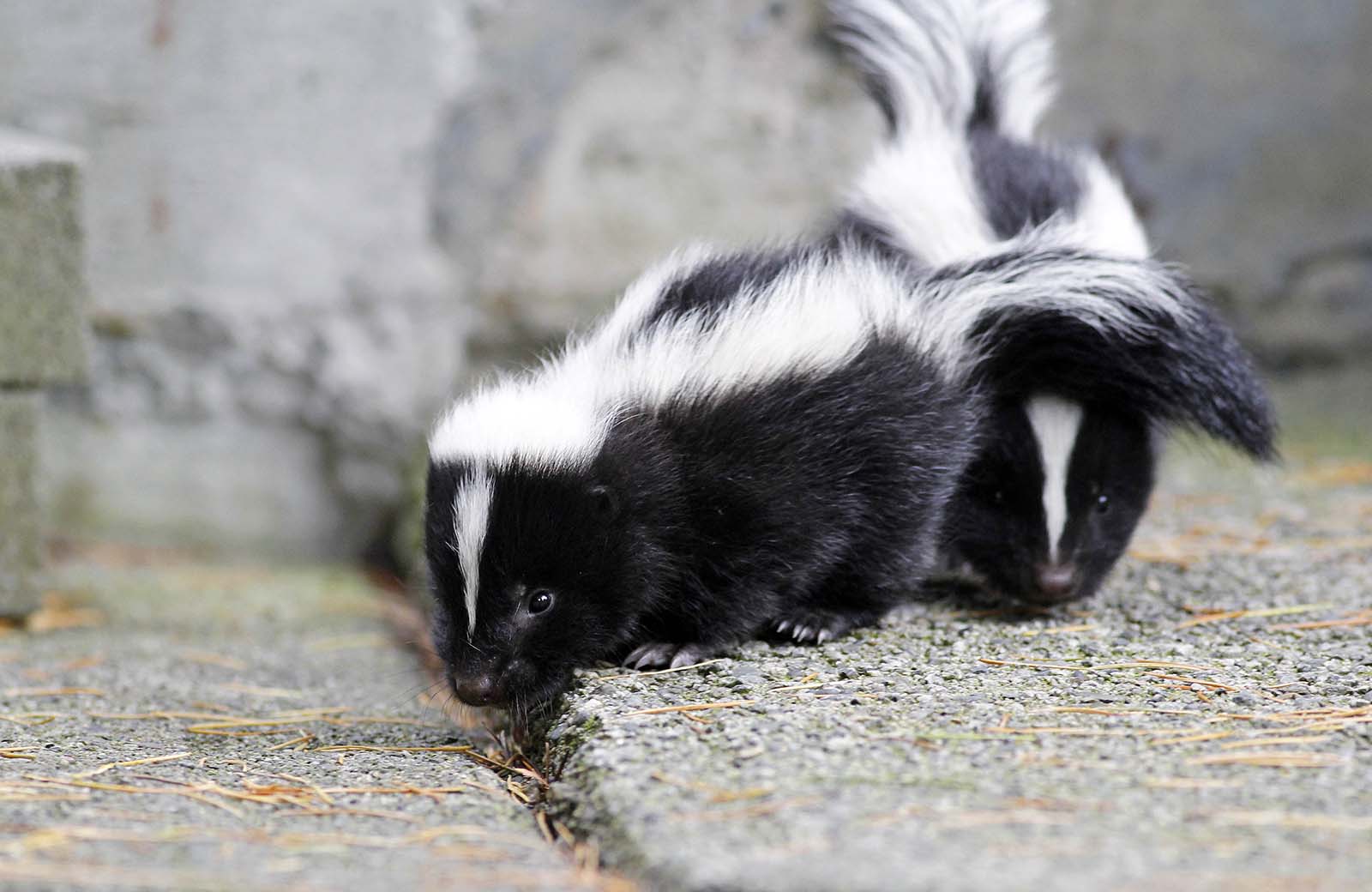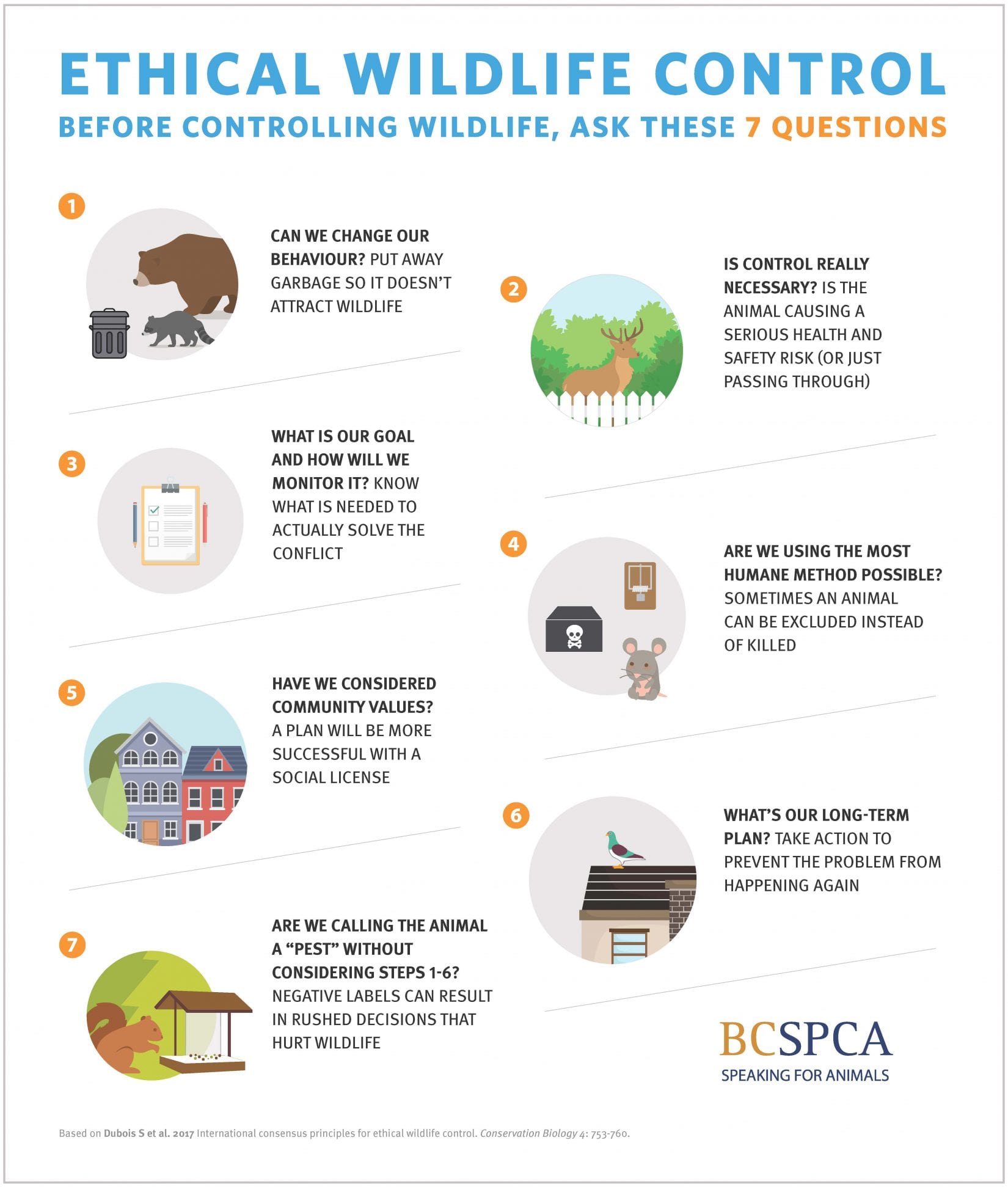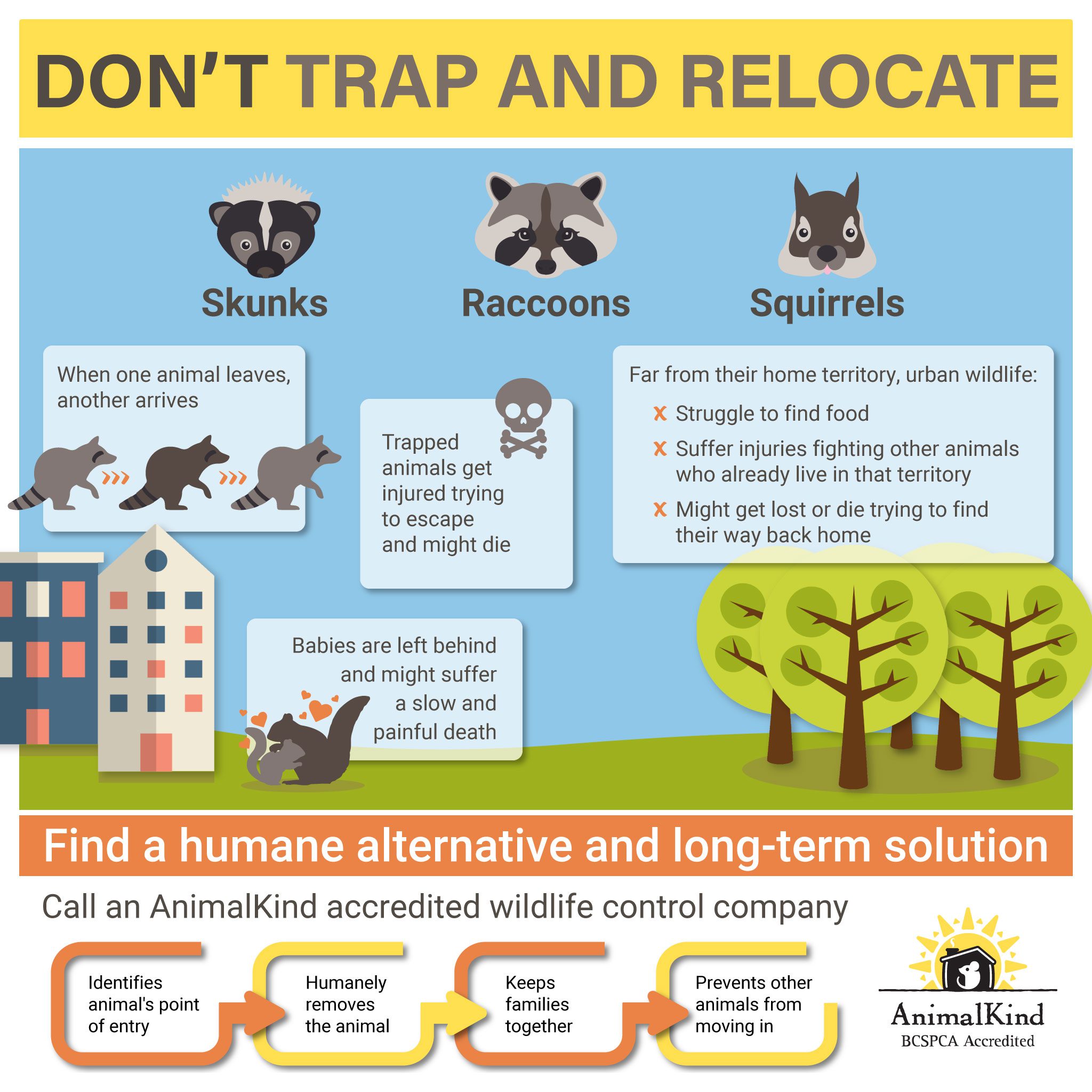Wild neighbours like raccoons, skunks, squirrels and other animals have learned to live in our towns and cities. Human-wildlife conflicts have become more common as urban development spreads to natural habitats.
The BC SPCA encourages respect for our wild neighbours. Read the resources below or contact our Animal Helpline at 1-855-622-7722 for advice on non-lethal methods of solving these occasional conflicts. If you need professional help for removing wildlife from your home, call an AnimalKind company.
Read the BC SPCA’s wildlife control best practices (PDFs) for:
bats, beavers, birds (see also: crows, geese and swans, gulls, pigeons, starlings), bullfrogs and green frogs, marmots, mice and rats, moles and voles, rabbits, raccoons, river otter and mink, skunks, snakes, grey squirrels, turtles
Download all best practice sheets

AnimalKind
The BC SPCA developed the AnimalKind accreditation program for wildlife and rodent control companies to recommend companies that use the most animal-friendly methods. Read more to find an AnimalKind accredited company near you, or look through our checklist of questions to ask a company to determine if they use animal-friendly methods.
Humane Rodent Control
The most effective and humane way to solve rodent problems is to prevent them before they happen. Learn how to rodent-proof your home to address the root cause of the problem.
Prevent wildlife conflicts
Take steps to wildlife-proof your home:
- Don’t feed wildlife: Secure your garbage, keep people and pet food indoors, clean up fallen fruit and spilled birdseed
- Prevent entry: Seal entrances and gaps to houses, sheds, barns and under porches
- Keep clean: Tidy up messes and spills, outdoor waste and materials to prevent denning or nesting
For more information, download an educational brochure:
Don’t feed the animals – keep wildlife healthy and wild (PDF)
Keep pets and wildlife safe and healthy (PDF)

Trapping is not the solution
Trapping and relocating wildlife is not a permanent or humane solution. Animals often injure themselves and may die trying to escape a trap. Relocated animals have to set up a new home, and may starve trying to find food or get into fights with other animals over territory.
When you trap animals, you also risk separating a mother from her babies. Even if you move an entire family, a mother may abandon her young due to pressure to find food and care for the babies.
If you have to remove an animal, call an AnimalKind company that uses exclusion techniques instead of trapping/relocating or killing.

Subscribe to WildSense newsletter
WildSense is a bi-monthly e-newsletter focusing on the unique issues and challenges of wild and exotic animals in B.C. WildSense promotes coexistence for human-wildlife conflicts and offers alternatives to exotic animal captivity with evidence-based solutions to improve the welfare of wildlife and exotic animals. Subscribe today!
The BC SPCA uses your personal information to update you on our work for animals as well as for advertising and analytics purposes. More information on uses and how to opt-out can be found in our Privacy Policy.
